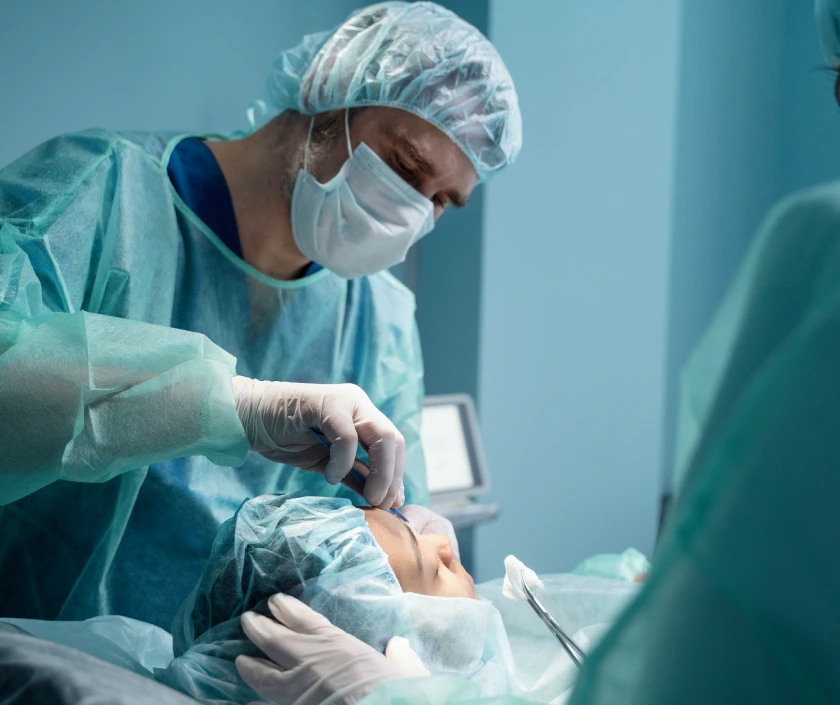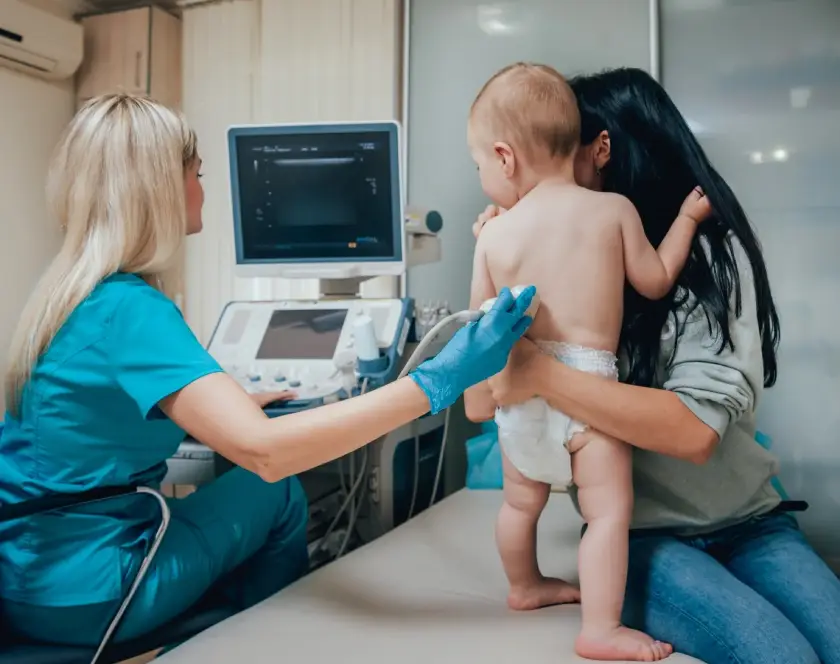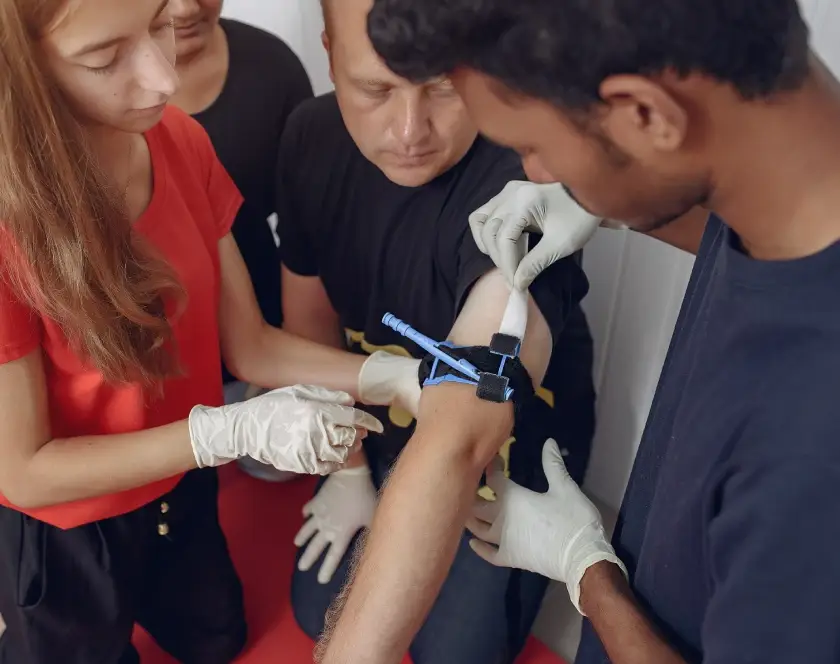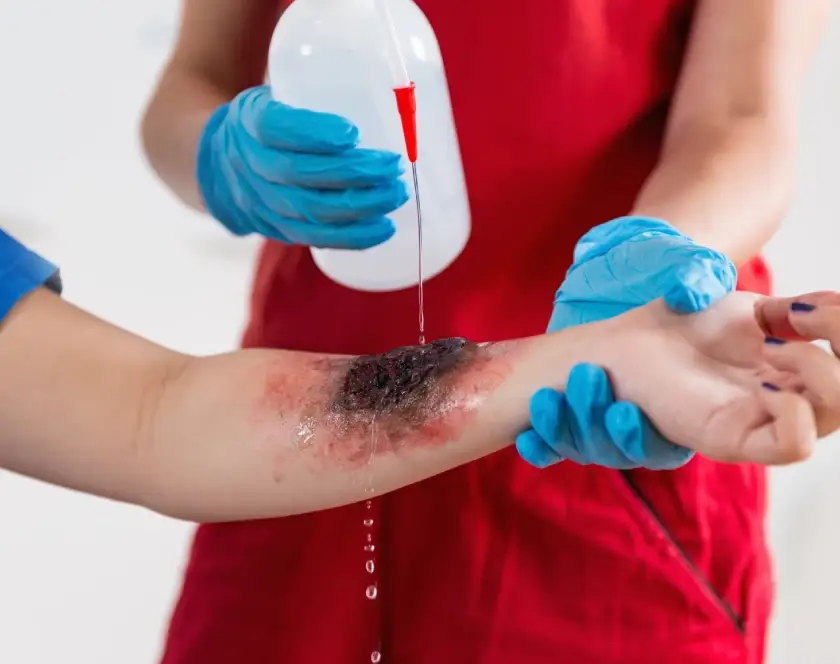General plastic surgery involves reconstructive techniques that restore the appearance and function of skin, soft tissues, and underlying structures affected by trauma, infections, tumours, chronic wounds, or congenital issues. It includes procedures such as skin grafting, flap surgeries, tumour excision, wound reconstruction, and scar correction.
At Elegance Clinic, our reconstructive plastic surgeons provide expert interventions for conditions like cellulitis, keloids, filariasis, soft tissue tumours, and non-healing wounds, helping patients recover both function and form through tailored, medically necessary plastic surgery solutions.
When is General Plastic Surgery Treatment Needed?
You may require general reconstructive plastic surgery if you experience:
- Persistent lower limb or genital swelling from filariasis or lymphedema
- Skin cellulitis with or without abscess formation
- Benign soft tissue tumours like lipomas or fibromas
- Diabetic foot ulcers, varicose ulcers, or other nonhealing wounds
- Disfiguring or painful keloids and hypertrophic scars
- Pressure sores on the back, buttocks, or legs
- Infected surgical wounds, such as post-bypass sternal dehiscence
- Physical deformities or contractures limiting movement
- Tissue loss from tumour removal, trauma, or chronic infection
Types of Conditions and Treatments Offered:
General Plastic Surgery
- Filariasis and Lymphedema (Lower Limb/Scrotal)
Chronic swelling due to filariasis is treated with surgical debulking, fibrotic tissue excision, and skin grafting. This helps manage the complications of filariasis disease, especially when conservative therapy fails. - Pilonidal Sinus
Treated with excision followed by flap reconstruction (Z-plasty or Limberg flap) to ensure complete healing. Hair removal is advised to prevent recurrence. - Pressure Sores and Ulcers
Common in immobile patients, especially in sacral or trochanteric areas. Treated using flap coverage after infection control and wound preparation. - Cellulitis and Related Infections
Whether due to diabetes, trauma, or chemotherapy, cellulitis is managed through antibiotics, surgical debridement, and skin reconstruction to contain infection and restore skin health. - Non-healing Wounds
Chronic ulcers, such as diabetic, hypertensive, or varicose wounds, require wound bed preparation, infection control, and either grafting or flap-based reconstruction for long-term healing. - Soft Tissue Replacement
For large or complex wounds, soft tissue reconstruction may involve microvascular tissue transfer or free flap grafting using healthy tissue from elsewhere on the body. - Chest and Abdominal Wall Defects
Conditions like chest wall tumours or complex hernias may require abdominal wall reconstruction by experienced surgeons to restore stability and function. - Compartment Syndrome
Acute swelling in the leg or forearm compartments is treated by timely decompression surgery followed by soft tissue reconstruction. - Tumour Excision (Lipoma and Soft Tissue Tumours)
Surgical removal of benign soft tissue tumours like lipomas or connective tissue tumours, often followed by flap or graft for contour correction and functional recovery. - Infected Post-Surgical Wounds
Particularly common after cardiac bypass, infected chest wounds (like sternal dehiscence) require debridement and flap coverage to close defects and prevent complications. - Keloid and Hypertrophic Scar Treatment
Large or symptomatic scars are managed through surgical excision, intralesional corticosteroid injections, or laser therapy for keloids, helping restore comfort and appearance. - Lymphedema Management
Chronic limb swelling due to lymphatic damage is addressed with debulking surgery, compression protocols, and long-term limb care to reduce discomfort and infection risk.
Pre-Treatment Protocol
Before initiating treatment, our specialists at Elegance Clinic will conduct:
- Thorough physical examination of wounds, tumours, or deformities
- Imaging or tests (blood, Doppler, ultrasound, etc.)
- Review of previous treatments, comorbidities, and surgeries
- Pre-operative photography and documentation
- Discussion of treatment options – surgical vs. conservative
- Anaesthesia evaluation and pre-op medical clearance
Treatment Process: How We Treat General Plastic Surgery Cases
For Infections and Wounds:
- Surgical debridement to remove infected tissue
- Antibiotic management and wound care
- Skin grafts or flap reconstruction for coverage
For Tumours and Swellings:
- Complete surgical excision
- Tissue replacement using grafts or flaps, if needed
For Keloids and Scars:
- Excision followed by flap or skin graft
- Intralesional injections for scar suppression
- Laser therapy for hypertrophic scar remodelling
For Large Defects or Chronic Loss:
- Use of microvascular free flaps or composite tissue transfer
- Functional reconstruction for mobility and contour
All surgeries are conducted by trained plastic and reconstructive surgeons using advanced microsurgical and wound-healing techniques.
Duration of Treatment
- Wound dressings: 1-3 weeks for infection control
- Minor surgeries: 1-2 hours per procedure
- Major reconstructions: Variable based on wound size and complexity
- Graft healing: 2-4 weeks post-op
- Scar/keloid therapy: May continue over 3-6 months
Clinical Considerations: Risks and Benefits
Possible Risks:
- Post-op infection
- Partial graft or flap failure
- Recurrence of keloid or hypertrophic scar
- Slower healing in diabetic or vascular patients
Benefits of Treatment:
- Restoration of lost or damaged soft tissue
- Pain relief and reduced infection risk
- Improved skin contour and function
- Enhanced cosmetic appearance and confidence
Aftercare Instructions
- Maintain dressing hygiene and avoid moisture
- Avoid trauma or pressure on the treated site
- Apply prescribed ointments or creams regularly
- Wear compression garments if indicated
- Attend all follow-up wound inspections
- Physiotherapy may be advised for mobility recovery
- Counselling or support in complex reconstructive cases
Recovery Timeline
- Simple wound recovery: 7-14 days
- Moderate reconstruction: 3-6 weeks
- Microvascular flap integration: 4-8 weeks
- Scar and keloid management: 6-12 months with follow-up care
When to Consult a Reconstructive Plastic Surgeon?
You should contact Elegance Clinic if you:
- Have non-healing wounds or chronic ulcers
- Struggle with painful or enlarging keloids
- Require treatment for soft tissue tumours or abnormal swellings
- Face complications like cellulitis, pressure sores, or surgical wound infections
- Need cosmetic or functional restoration after trauma or disease
- Are concerned about scars, deformities, or tissue loss
Hear from our patients
EXCELLENTTrustindex verifies that the original source of the review is Google. I would like to thxnamrata for skin care she has done wonderful job I really appreciate her thx namrata once againPosted onTrustindex verifies that the original source of the review is Google. Very good service Sp. Thanx namrata benPosted onTrustindex verifies that the original source of the review is Google. I had an excellent experience at Elegance Clinic for my hair transplant. The entire team was very professional, supportive, and reassuring throughout the process. Everything was clearly explained in detail, from the initial consultation to the procedure itself and the post-operative care. Pre-operative preparation was thorough, intra-operative care was meticulous, and post-operative guidance was clear and well structured. The procedure was completely painless, both during and after surgery, which was very reassuring. Overall, the care was of a very high standard, and the experience exceeded my expectations. I would highly recommend Elegance Clinic to anyone considering a hair transplant.Posted onTrustindex verifies that the original source of the review is Google. I had Q-Switch laser treatment done by Dr. Ashutosh Shah at Elegance Clinic. Very satisfied with the treatment and results. Doctor and staff were professional and supportive.Posted onTrustindex verifies that the original source of the review is Google. Thank you so much dearest dr.ashutosh shah and ur best team for the treatment....we r really grateful to uPosted onTrustindex verifies that the original source of the review is Google. I had a really good experience with Elagnace clinic. I got my ear piercing done. It was my first ever piercing and it went really well. Painless and really handles with care. Shoutout to the whole team who relaxed me during the procedure. Everyone over here had a great positive attitude. Highly recommend them. 😊Posted onTrustindex verifies that the original source of the review is Google. I underwent dermabrasion at Elegance Clinic by Dr. Ashutosh Shah, and the results are amazing. The procedure was explained clearly, and I felt comfortable throughout. My skin looks smoother and healthier now. Very satisfied with the treatment and care.Posted onTrustindex verifies that the original source of the review is Google. Best result per wait bohut krvate haiPosted onTrustindex verifies that the original source of the review is Google. I got face microneedling done at Elegance Clinic with Dr. Ashutosh Shah and had a very positive experience. Dr. Shah and the team are professional, knowledgeable, and friendly, explaining the procedure clearly and making me feel comfortable throughout the session. The clinic is clean, well-organized, and hygienic, and the staff is supportive and attentive. I’m happy with the results and would recommend Elegance Clinic for microneedling and other skin treatments.
Contact Us
Ready to discuss? Fill out our contact form for a confidential consultation.
FAQ
What is the difference between plastic surgery and general surgery?
Plastic surgery primarily focuses on the reconstruction or repair of skin, soft tissues, and other external structures following injury, infection, or congenital issues. In contrast, general surgery deals with operations on internal organs such as the intestines, stomach, or gallbladder.
What is the difference between normal surgery and plastic surgery?
While general or “normal” surgery addresses essential internal organ systems, plastic surgery is dedicated to restoring both the appearance and function of the body’s external parts. This includes procedures to treat burns, scars, deformities, and soft tissue damage.
Which is the most common plastic surgery?
Common reconstructive plastic surgeries include keloid removal, lipoma excision, scar revision, and chronic wound coverage. These procedures are typically done for medical reasons and improve both form and function.
What are the two types of plastic surgery?
The two types of Plastic Surgery are:
Reconstructive surgery (medical necessity)
Cosmetic surgery (aesthetic improvement)
Is plastic surgery painful?
No, modern techniques use anaesthesia and effective pain management to minimise discomfort.
What comes under general surgery compared to plastic surgery?
General surgery: Hernia repair, appendectomy, gallbladder removal.
Plastic surgery: Wound reconstruction, scar correction, soft tissue tumours.







